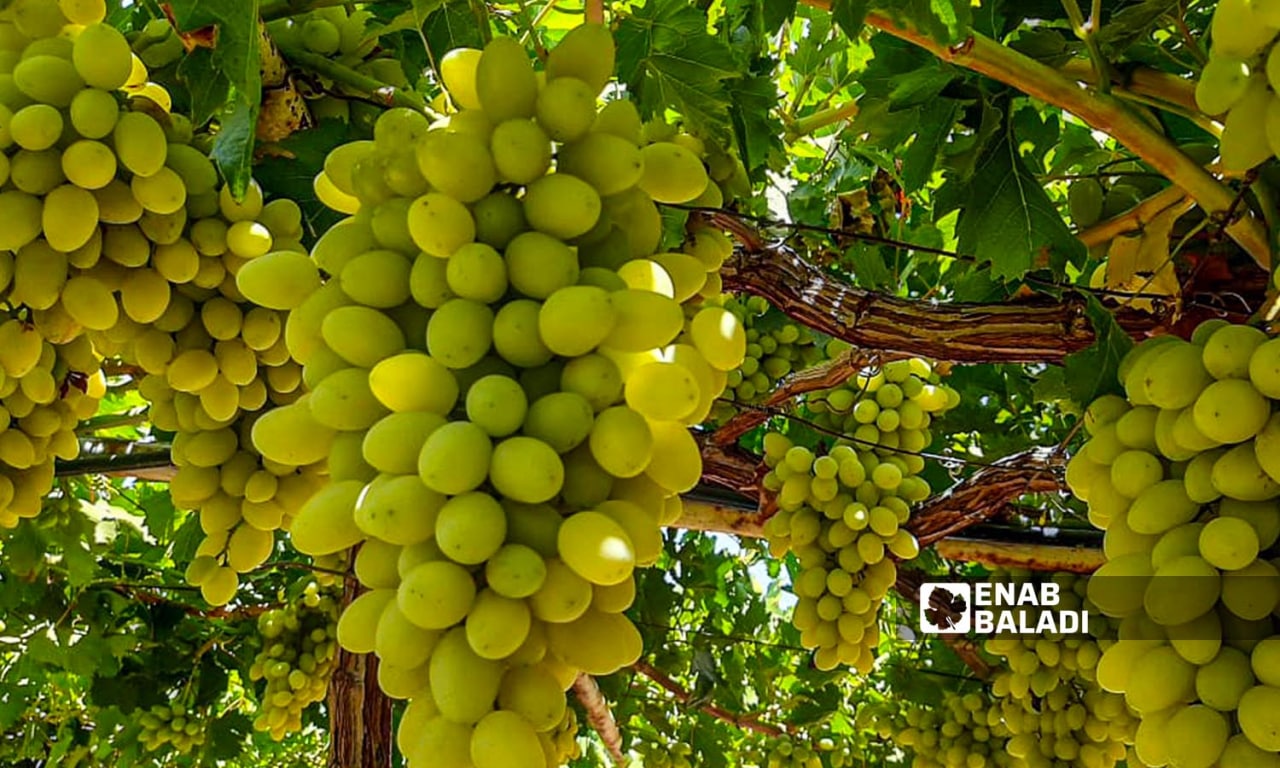



The olive crop is one of the most important basic resources that the people depend on in the northern Idlib governorate as they wait for the harvest season on which they financially depend and which provides a part of their seasonal supplies.
Although olive cultivation formed part of the identity of the town of Harem, north of Idlib city, which was known for its olive trees scattered over most of its agricultural lands, farmers had to uproot olive trees and replace them with grapevines during the past years.
Hassan al-Rajab, 45, told Enab Baladi that while working on installing iron pergolas for grapevines on his agricultural land, west of Harem, four years ago, he uprooted all the olive trees of his five-Dunum land. (Dunum equals 1000 square meters).
Olive trees occupy more space than grape trees require, but the profits are three times less than what grapes produce in a lesser area, according to Rajab’s estimates.
Farmers benefit from selling grape leaves that families frequently use to prepare traditional dishes, and the possibility of selling green grapes before they are ripe (sour grapes) guarantees a greater profit.
Harem farmers have benefited greatly from selling olive wood after the uprooting of trees, as the price of a ton of firewood has reached about 150 US dollars during the past four years.
Jumaa al-Khaled, 42, another farmer from Harem, asserted that grape cultivation is an original in the town and has increased over the past years, noting that despite the high cost of growing grapes, it remains a “profitable business” for most farmers.
The agricultural engineer, Mousa Abu Bakr, told Enab Baladi that the town of Harem is a humid area with abundant water due to its proximity to the Assi River, which allows the cultivation of grapes that requires large amounts of water.
Abu Bakr added that farmers have recently focused on cultivating grapes, given that their financial income is higher than the rest of the agricultural crops for which the city was known, such as olives and citrus fruits.
The agricultural engineer denied the danger of uprooting olive trees, as the areas in which olive trees are uprooted and grapes replaced are the areas near the Assi River only.
The minimum production of a single grapevine is estimated at 70 kilograms, while olive production decreased due to errors in pruning.
According to the agricultural engineer, growing grapes on the iron pergolas is the best, as it occupies less space than agricultural land.
Pergolas also protect grapes from disease and infection with fungi, in addition to the danger of rodents and livestock.
Grapes are used in jams, molasses, juices, and raisins, and sour green grapes are used in preparing vinegar or pickle, while grape leaves are used in the most delicious foods in Syrian cuisine.
if you think the article contain wrong information or you have additional details Send Correction